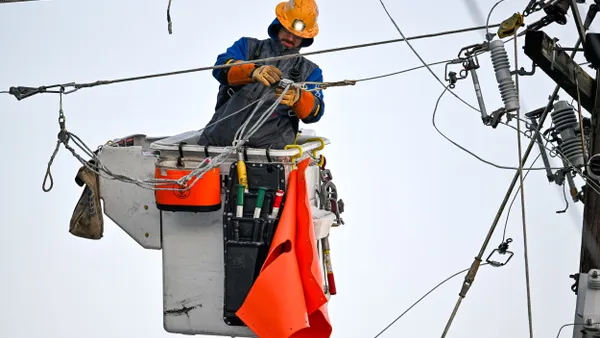Dive Brief:
- Nest announced a new service it is offering in conjunction with SolarCity, allowing customers to optimize their energy usage alongside variable rate plans to take advantage of less expensive power.
- Signing up for the "Time of Savings" program, in areas where it is available, allows a customer's utility to share rate information with the learning thermostat so that it can shift usage to off-peak times.
- The announcement follows on Alphabet's news in April, that it had added more than 50 energy providers to the roster of companies providing rebates and rewards to Nest thermostat users.
Dive Insight:
Alphabet continues to announce a wider array of energy offerings for Nest owners, just a year after the thermostat launched new offerings short on additions for those worried about their power consumption.
The new Time of Savings program "will help you make the most of your energy company’s Time of Use plan, without you doing a thing," according to the company's blog. Thermostats could adjust to pre-cool homes ahead of peak rates, or slightly adjust the temperature during high-demand times.
Nest launched the new program with SolarCity, and said it is "also working with Southern California Edison and other energy partners to bring Time of Savings to more customers in the future."
The news comes as California ratepayers appoach default time-of-use rates by 2019, as outlined in a net metering policy decision earlier this year. SolarCity and Nest are also offering these plans in Arizona and New York, home to proposals for residential demand charges and the Reforming the Energy Vision initiative respectively.
This spring, Nest announced a large expansion of energy offerings through its thermostat, adding more than 50 energy providers to its partners list. The announcement followed on speculation that sales have lagged at the Alphabet-owned company. Google, since renamed, purchased the company for $3.2 billion for in 2014. The company included Nest in its "Other Bets" revenue tranche, which along with several other companies showed revenues of $448 million in 2015. That, people with knowledge of the matter, likely means Nest is underperforming.
Nest noted that its most recent Time of Savings offering "will only make adjustments if your Nest Thermostat is controlling electric heating or cooling equipment, so if you have a non-electric system, Time of Savings won’t directly help save money by using less energy."
Nest's capabilities now far exceed energy management. The device now includes a carbon monoxide and smoke detector that can recognize different types of fires, alongside a high definition 1080p security camera.













